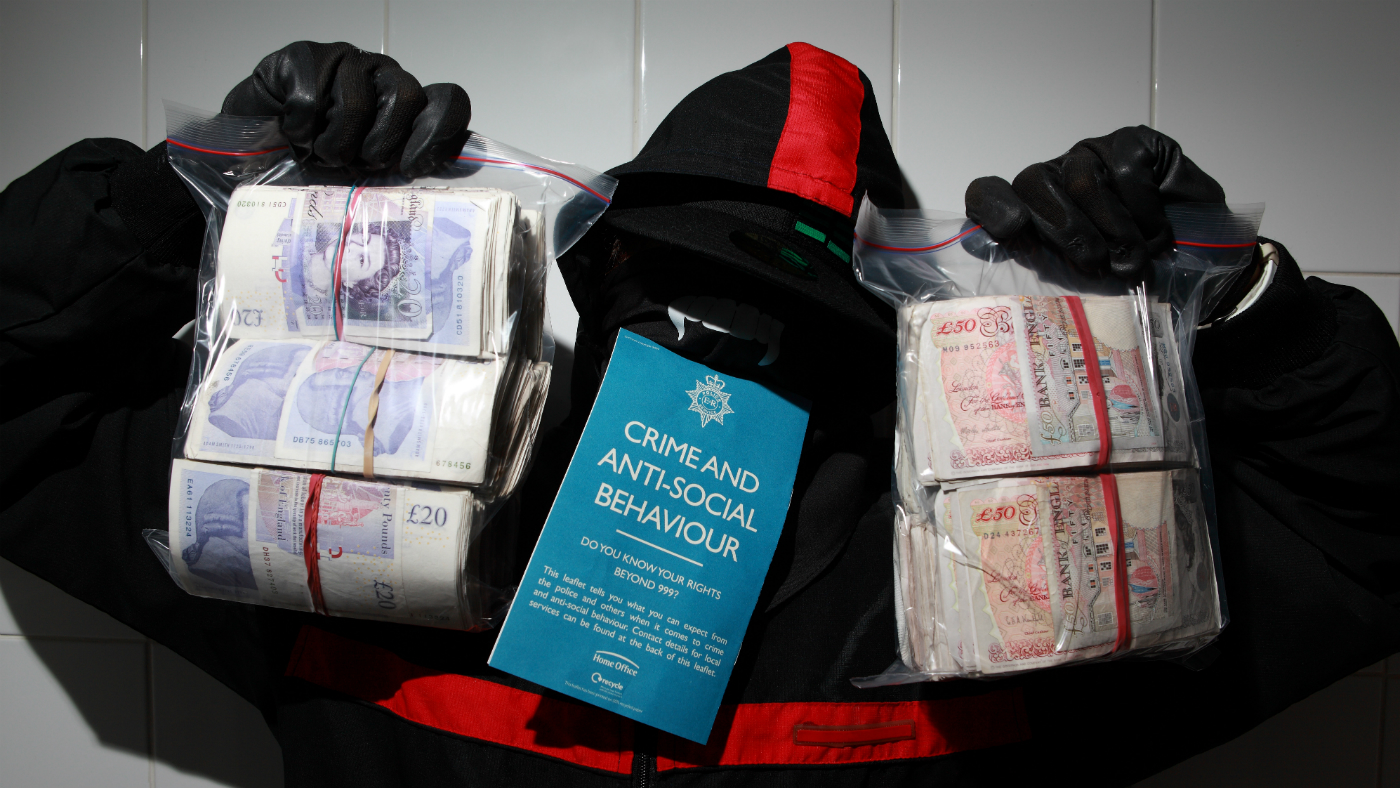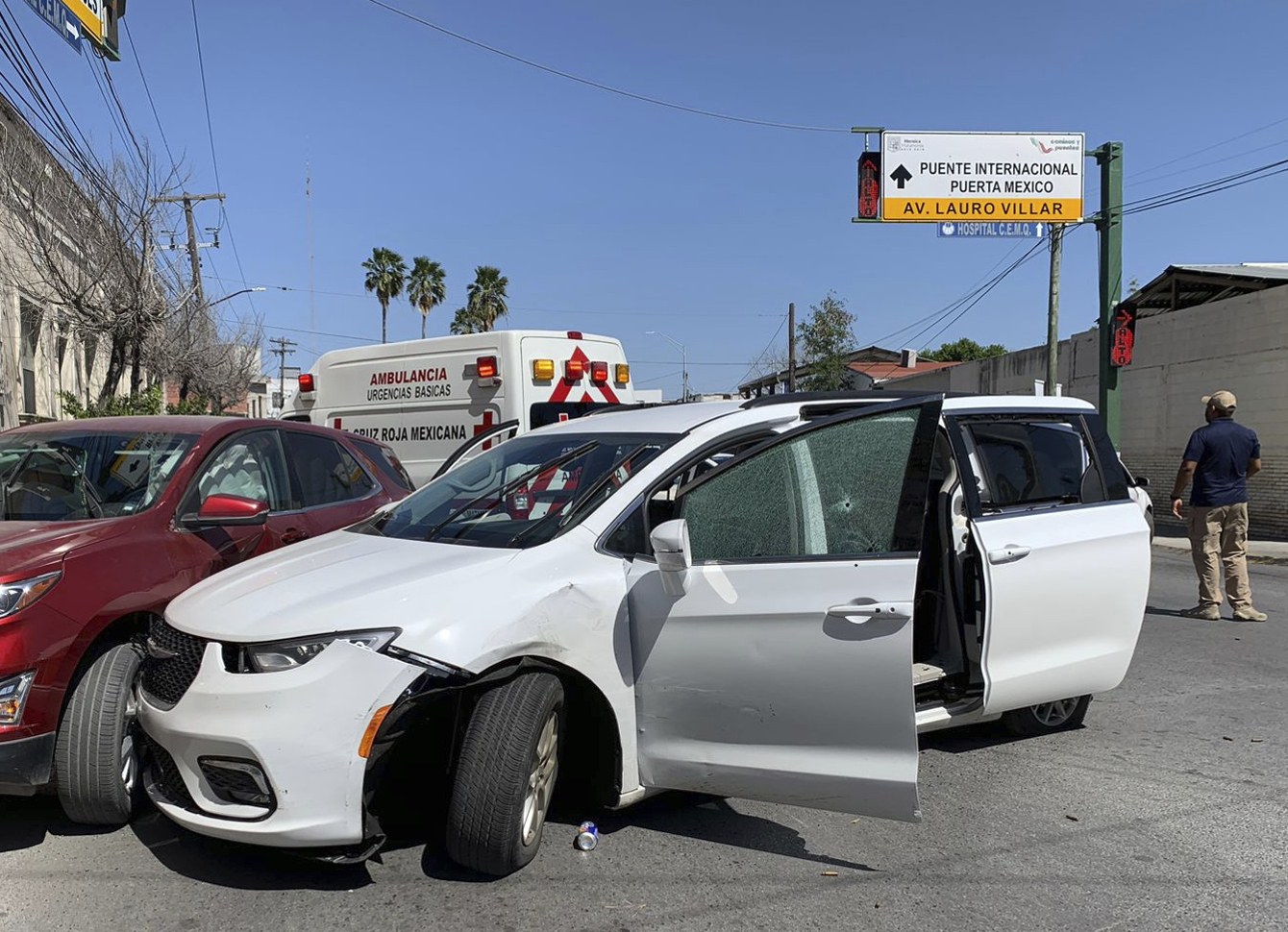Violent Albanian gangs 'exerting power' over UK drug trafficking
National crime agency warns small group are having a big impact around the country

A free daily email with the biggest news stories of the day – and the best features from TheWeek.com
You are now subscribed
Your newsletter sign-up was successful
Violent Albanian gangs are controlling a significant portion of the UK's cocaine market, a law enforcement report says.
In its annual assessment of serious and organised crime in the UK, the National Crime Agency (NCA) says Albanians make up only 0.8 per cent of organised criminals in the UK, but warns they are influential and quick to get involved in serious violence.
NCA deputy director general Matthew Horne said: "It's very much a group that's small in number but big in impact.
The Week
Escape your echo chamber. Get the facts behind the news, plus analysis from multiple perspectives.

Sign up for The Week's Free Newsletters
From our morning news briefing to a weekly Good News Newsletter, get the best of The Week delivered directly to your inbox.
From our morning news briefing to a weekly Good News Newsletter, get the best of The Week delivered directly to your inbox.
"We have seen an emergence of violence, particularly around enforcing the drug trade, in this group."
London is their "primary hub", but they are established across the UK, reports the BBC.
The gangs are also increasingly expanding their network of influence and forming direct relationships with cocaine suppliers in Latin America.
The NCA adds that Turkish and Serbian crime groups dominate a high volume of the cocaine trade in the UK, while Turkish and Pakistani groups dominate the heroin market.
A free daily email with the biggest news stories of the day – and the best features from TheWeek.com
Corruption among staff at UK ports and airports was a "key vulnerability" in the fight against drug trafficking, continues the report: "Containers and air passengers are the modes most susceptible to the facilitation of Class A drugs by corrupt workers."
It goes on: "Pilots may use foreign registered aircraft (outside the jurisdiction of the Civil Aviation Authority) or aircraft registered to trust companies or to third party addresses that provide a level of anonymity."
The NCA also warns that the purchase of property in the UK presents a significant risk of money laundering.
"Experts described previous estimates of £36 billion to £90 billion for all money laundering affecting the UK as ‘a significant underestimate’, suggesting the amount of cash being illegally laundered in the UK could easily be in excess of £100 billion," says BuzzFeed News.
-
 Quiz of The Week: 14 – 20 February
Quiz of The Week: 14 – 20 FebruaryQuiz Have you been paying attention to The Week’s news?
-
 The Week Unwrapped: Do the Freemasons have too much sway in the police force?
The Week Unwrapped: Do the Freemasons have too much sway in the police force?Podcast Plus, what does the growing popularity of prediction markets mean for the future? And why are UK film and TV workers struggling?
-
 Properties of the week: pretty thatched cottages
Properties of the week: pretty thatched cottagesThe Week Recommends Featuring homes in West Sussex, Dorset and Suffolk
-
 4 Americans kidnapped in Mexico by armed gunmen, 2 killed, FBI says
4 Americans kidnapped in Mexico by armed gunmen, 2 killed, FBI saysSpeed Read
-
 Home Office worker accused of spiking mistress’s drink with abortion drug
Home Office worker accused of spiking mistress’s drink with abortion drugSpeed Read Darren Burke had failed to convince his girlfriend to terminate pregnancy
-
 In hock to Moscow: exploring Germany’s woeful energy policy
In hock to Moscow: exploring Germany’s woeful energy policySpeed Read Don’t expect Berlin to wean itself off Russian gas any time soon
-
 Were Covid restrictions dropped too soon?
Were Covid restrictions dropped too soon?Speed Read ‘Living with Covid’ is already proving problematic – just look at the travel chaos this week
-
 Inclusive Britain: a new strategy for tackling racism in the UK
Inclusive Britain: a new strategy for tackling racism in the UKSpeed Read Government has revealed action plan setting out 74 steps that ministers will take
-
 Sandy Hook families vs. Remington: a small victory over the gunmakers
Sandy Hook families vs. Remington: a small victory over the gunmakersSpeed Read Last week the families settled a lawsuit for $73m against the manufacturer
-
 Farmers vs. walkers: the battle over ‘Britain’s green and pleasant land’
Farmers vs. walkers: the battle over ‘Britain’s green and pleasant land’Speed Read Updated Countryside Code tells farmers: ‘be nice, say hello, share the space’
-
 Motherhood: why are we putting it off?
Motherhood: why are we putting it off?Speed Read Stats show around 50% of women in England and Wales now don’t have children by 30